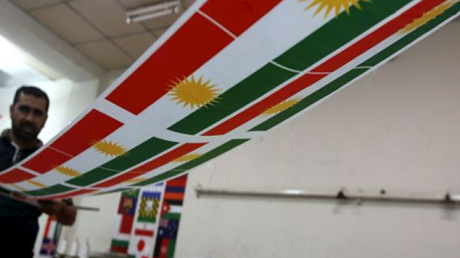How Tehran Terror Attacks Overshadowed Major Developments in the Middle East

Reports of a terrorist attack in Tehran not only overshadowed the recent crisis between Doha and Riyadh, but also diverted public opinion in Iran and the region from two significant developments: while Zarif was on an Ankara visit, the Turkish parliament approved troops deployment to Qatar, and in Erbil, Kurds set September 25 as the date for a referendum on the independence of the Iraqi Kurdistan.
The consequences of these two developments are no less than those of the terror attack in Tehran. Turkey is going to deploy troops to Qatar through Iran’s airspace, while it has been a vocal critic of Iraq’s central government, close to Iran, and prevented Shia-majority Popular Mobilization Forces’ entry into Mosul, verging on the Iraq-Turkey border.
Turks are masters of creating opportunities and putting them to good use. They do not stand on ceremony with anyone when it comes to their national interests. Turkey has demonstrated in the past that it has smart ways to convince Iran not to engage, when it takes provocative measures. An example was the smooth stationing of missile defense systems in its soil, which mainly target Iran’s national security, through special psychological propaganda technics. At that time, Iran’s officials failed to comprehend the Turkish trick and counter the measure. A hypothetical question to ask is if Turkey would mutually accept deployment of Iranian troops to Tal Afar if Baghdad asked Iran to build a military base there, just in the same way Iran accepted deployment of Turkish troops to Qatar. Obviously, the answer is no, and it demonstrates an inherent imbalance.
In a separate development, Erbil has set date for a Kurdish independence referendum. Given the Iraqi Kurdistan’s relations with Turkey, and Ankara’s silence in response to the news, the development seems to be in complete coordination between the Kurds and Turkey. It appears that wresting Mosul from the hands of ISIS and the strong involvement of the Iraqi government and Popular Mobilization Forces in disputed regions and along international borders are equally dangerous for Erbil and Ankara.
A breakaway independent government backed by Turkey could be a priority for both Erbil and Ankara if they feel the Iraqi government is to control its international borders or set to revive control all across the country on macro-level.
Another significant but overlooked development was reports that Syrian Kurds had let ISIS terrorists withdraw from Raqqah. As I have repeatedly noted, ISIS is and will remain to be a strategic instrument for Ankara, used when the circumstances are due. Even if the Syrian Kurds accept Ankara’s patronage, they will no more be called “terrorists” by Turkey and could have a chance to become an autonomous region, or even an independent state, provided that they accept Ankara’s strategic considerations, just in the same way Barzani, formerly seen by Ankara as a tribal leader, was anointed president of Kurdistan overnight.
In choosing between or conceding to two Sunni Kurd and Alawite governments in Syria and a Shia government in Iraq, Turkey’s ultimate choice is the Kurdish government.
* This piece was originally published in the Reformist Arman daily in Persian.

